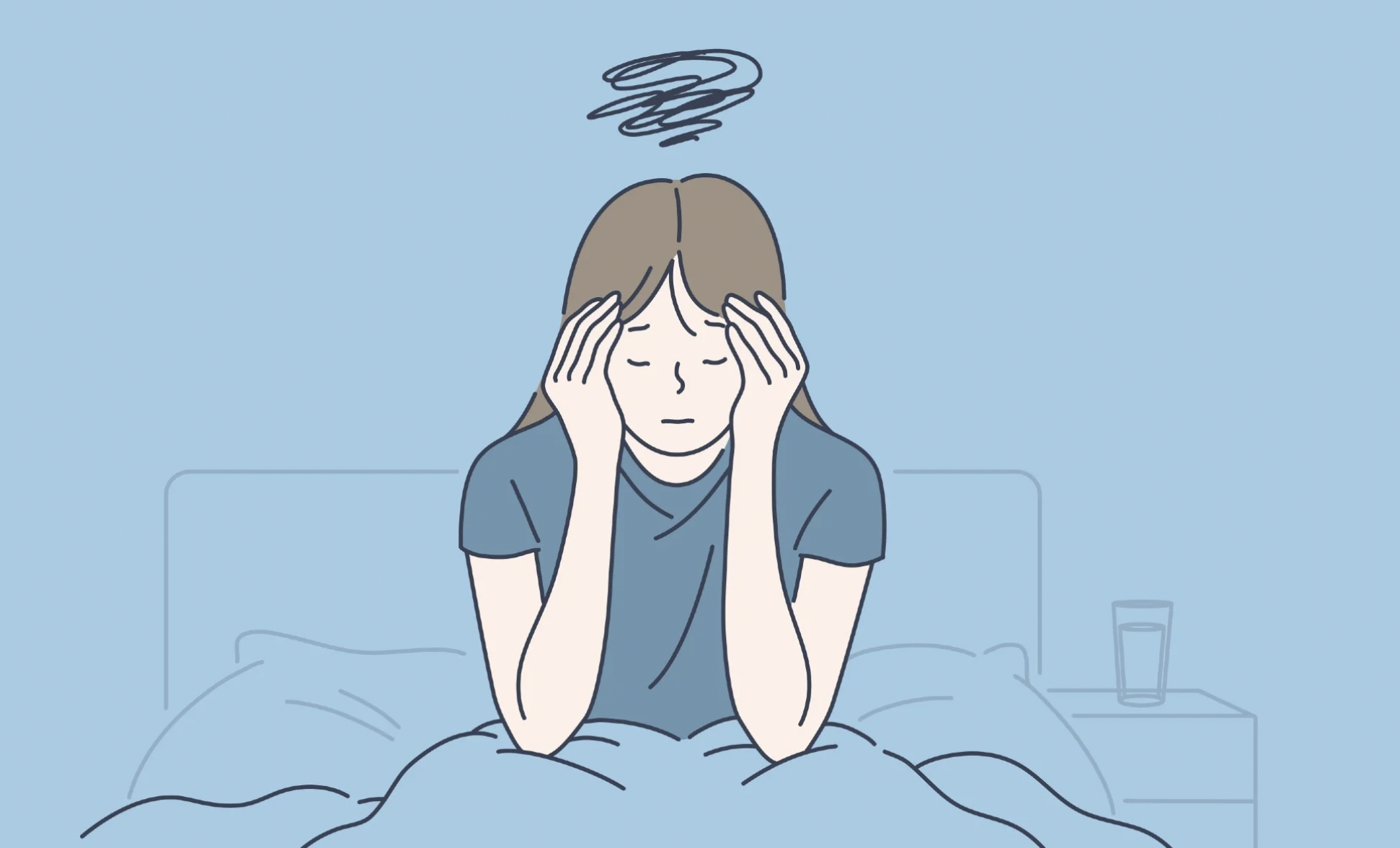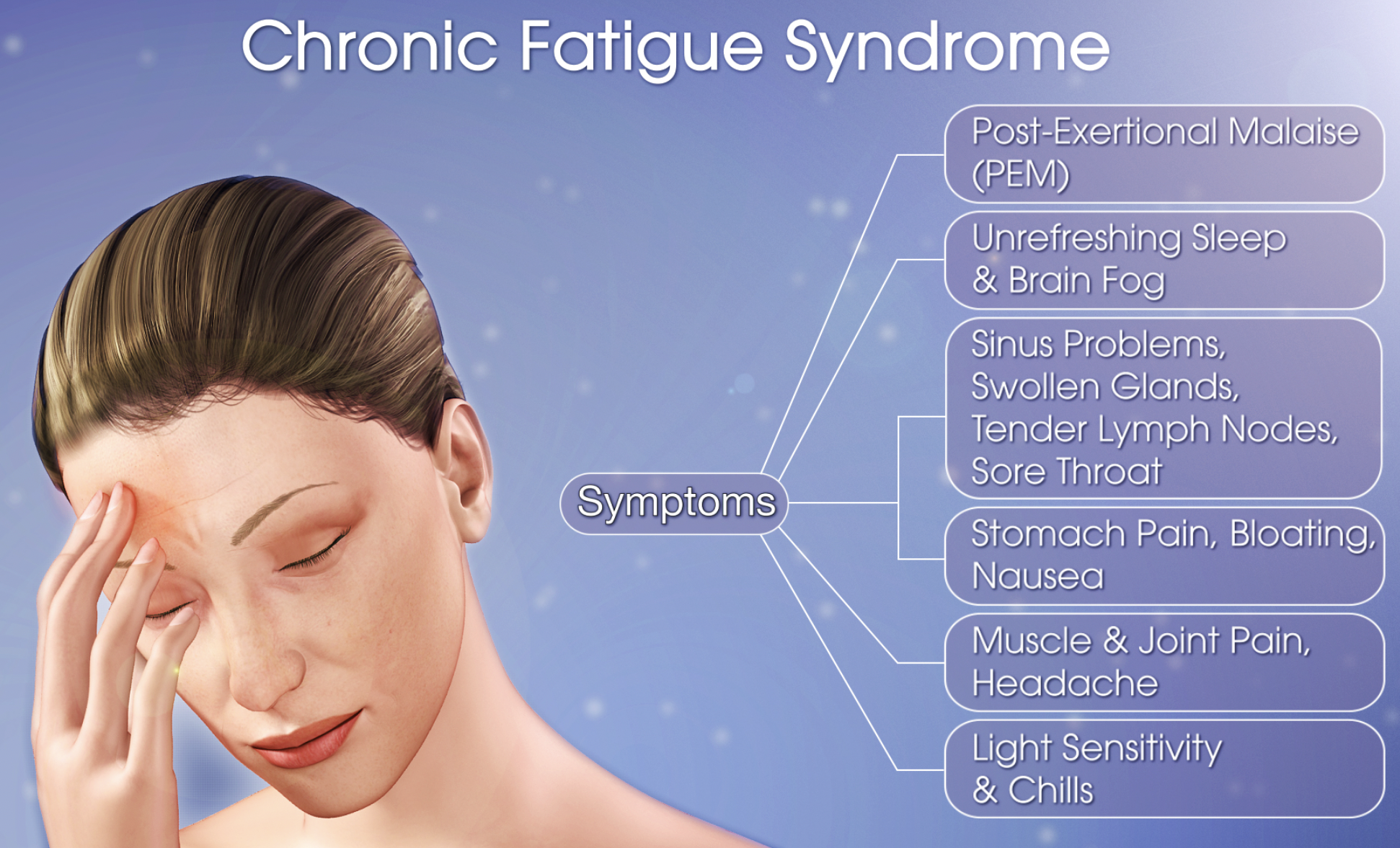Chronic fatigue syndrome (CFS) is a complex disease that physicians must diagnose and fully understand.
CFS is a chronic (long-lasting) disease that makes people feel very tired and weak. They may also experience headaches, dizziness, or other physical symptoms. Sometimes they also have emotional symptoms, such as anger or depression.
Different people with CFS may have different symptoms. Many of the symptoms of CFS are similar to other conditions, such as monochromia, Lyme disease, and depression. Symptoms can change over time, even in the same person.
This complicates the treatment of the disease. No single medication or treatment can address all potential symptoms.

CFS is sometimes also called myeloid encephalomyelitis (ME). “Myalgic” (pronounced: my-AL-jik) means muscle pain. “Encephalomyelitis” (pronounced: in-sef-uh-low-my-eh-LIE-tis) means inflammation of the brain or spinal cord.
What are the signs and symptoms of chronic fatigue syndrome?
A person with chronic fatigue syndrome may have several possible symptoms. The most common ones include:
- Severe tiredness that may make it difficult to get out of bed and perform daily activities
- Sleep problems, such as difficulty falling or staying asleep, or not getting enough restful sleep
- Symptoms worsen after physical or mental exertion (so-called post-exertional disease).
- Symptoms or dizziness that worsens when rising from a standing or lying position to a sitting position
- Problems with concentration and memory
- Headache and stomach pain
What causes chronic fatigue syndrome?
Scientists have been studying chronic fatigue syndrome for years, but they still aren’t sure what causes it.
Many doctors believe that the way certain conditions affect the body and brain can put some people at risk of developing CFS. For example, if someone has the virus and is under a lot of stress, the combination of these two factors can make them more likely to develop CFS.
These things are thought to interact with each other to put some people at risk of CFS:
infection Experts have wondered whether infections such as measles or Epstein-Barr virus (the virus that causes mono) might increase the risk of CFS. Epstein-Barr’s role in CFS is unclear because research has not confirmed it as a cause.
- Problems with the immune system or nervous system
- Hormonal imbalance
- Emotional stress
- Low blood pressure
- Chronic fatigue syndrome can affect people of any race and age, but is most common in people in their 40s and 50s. This is rare in children. Few teenagers suffer from CFS, and it is more common in girls than boys.
Sometimes different people in the same family have CFS. This may be because the tendency to develop CFS is genetic, but more research is needed to see if this is true.
How is chronic fatigue syndrome diagnosed?
There is currently no test to determine whether a person has chronic fatigue syndrome. Doctors ask many questions (about the person’s medical history and the health of family members, medications they take, allergies, smoking and drinking habits, etc.). They will also conduct an investigation.
Doctors usually order blood, urine (urine) or other tests to check for conditions causing these symptoms. They may refer the person to another specialist, such as a sleep specialist or neurologist, to help make a diagnosis.
CFS is diagnosed when symptoms persist for at least 6 months. This is often how long it takes to receive test results and meet with the person’s advisor. However, there is no need to wait 6 months to see a doctor and start treatment. Sometimes symptoms disappear within 6 months, which may mean it is not CFS.
How is chronic fatigue syndrome treated?
There is no known cure for chronic fatigue syndrome, but the symptoms can be treated. Experts suggest focusing on the most bothersome symptoms first and working with your doctor to manage them:
Post-exertional illness: For people whose symptoms worsen even after minor activity, experts suggest “increasing” activity. This means planning a balance between activity and rest based on the boundaries of what we feel comfortable with. It may vary from person to person. A person with CFS should not be forced to work beyond their capabilities, as this may cause failure or worsening of symptoms.
Dizziness: People who feel dizzy or lightheaded when sitting or standing may need to drink more fluids, add more salt to their food, or wear supportive stockings.
- sleep problems Getting enough sleep can help you recover from CFS-related sleep problems.
- Problems with concentration and memory. Finding ways to keep track of important things (like keeping lists and taking notes) can help with concentration and memory problems.
- Headache and stomach pain. Gentle massage and heat may help some people suffering from CFS pain.
- Doctors may also recommend over-the-counter (OTC) or prescription medications for some of these symptoms.
Visiting your doctor or counselor frequently can help manage CFS. So join a support group for people with CFS. The main goal of therapy is to help people cope with a disease that can be difficult or stressful to live with. This will not help treat or cure the disease. Sometimes techniques such as deep breathing, massage and yoga can reduce stress and improve well-being.
